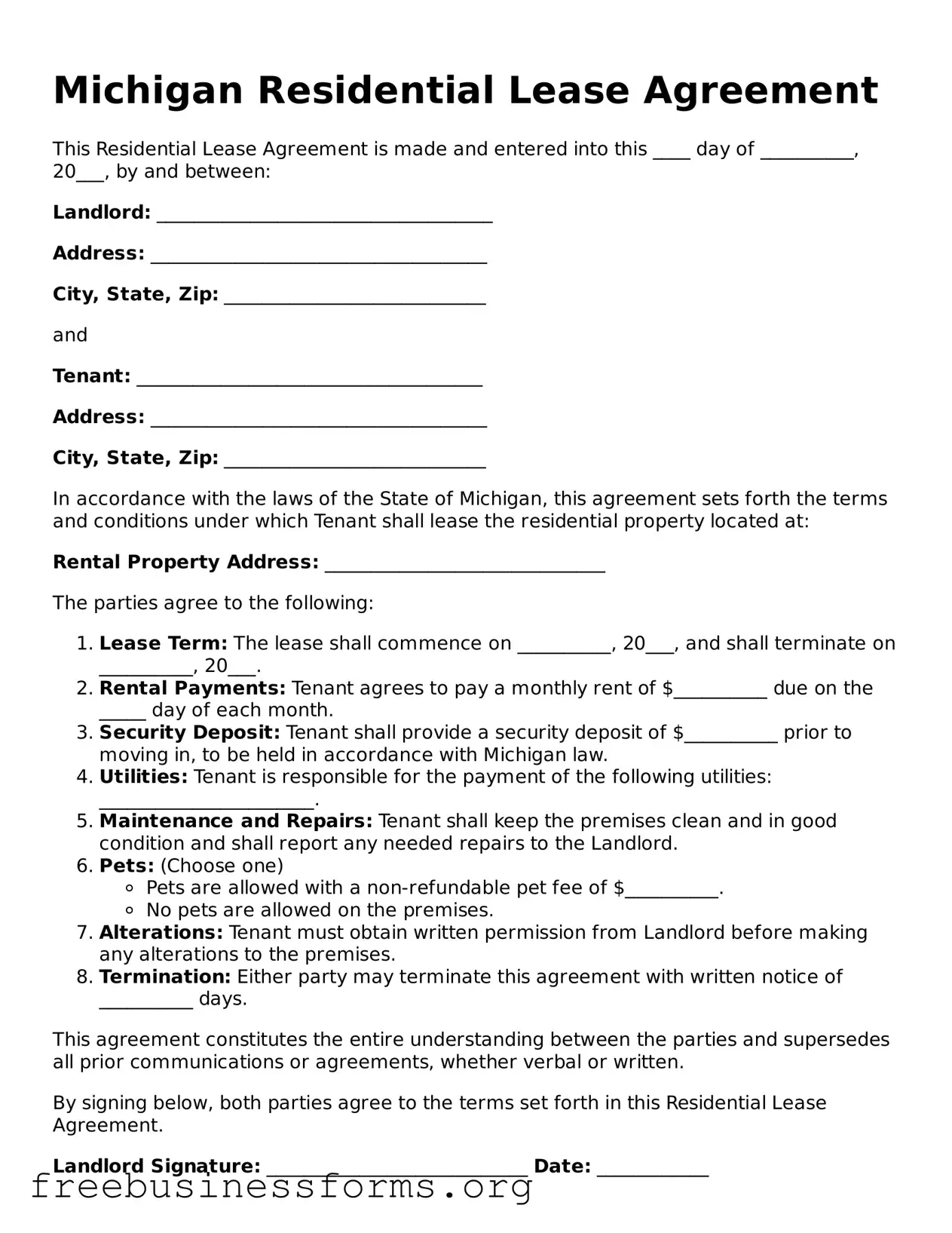Blank Residential Lease Agreement Template for Michigan
The Michigan Residential Lease Agreement is a legal document that outlines the terms and conditions between a landlord and tenant for renting residential property in Michigan. This form serves to protect the rights of both parties while establishing clear expectations regarding the rental arrangement. Understanding this agreement is crucial for anyone involved in a residential lease in the state.
Open Form Here

Blank Residential Lease Agreement Template for Michigan
Open Form Here

Open Form Here
or
↓ PDF File
Quickly complete this form online
Complete your Residential Lease Agreement online quickly — edit, save, download.